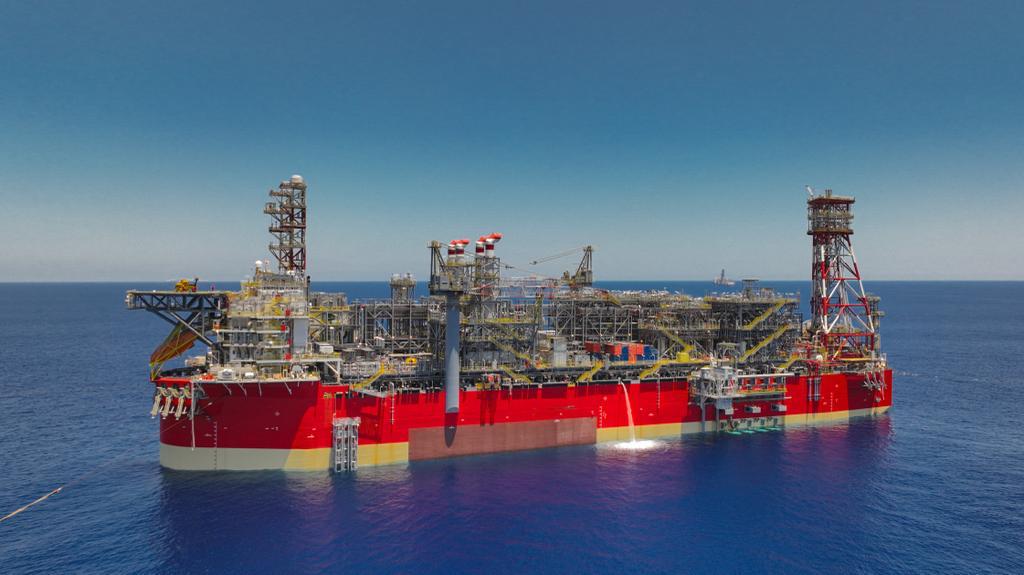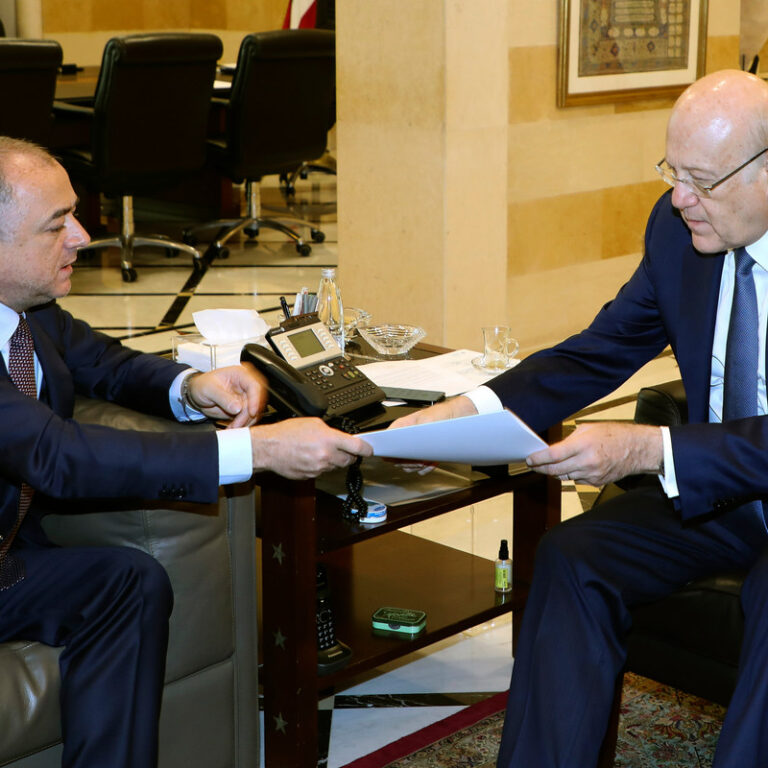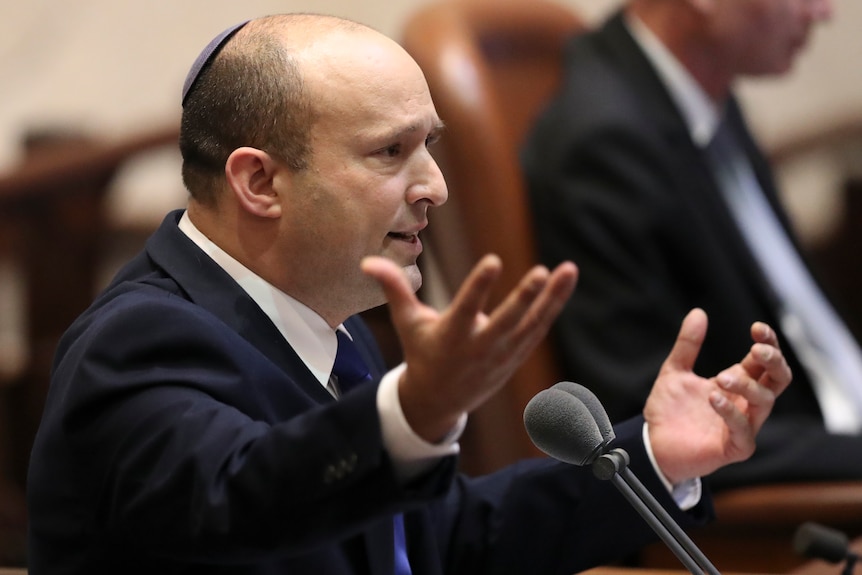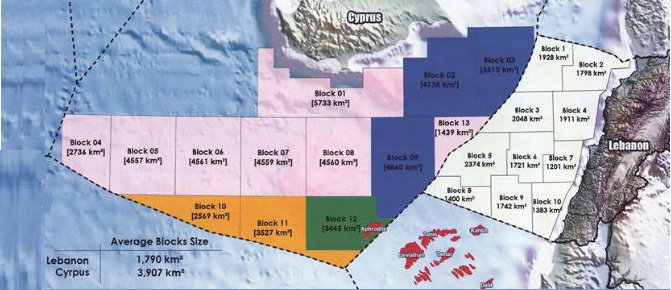Agreement reached
Tuesday 11, October In Israel, the premier announced a “historic” agreement between Lebanon and Israel, but without revealing its content. The agreement “will strengthen Israel’s security, inject billions into the Israeli economy and ensure the stability of our northern border,” said the Israeli Prime Minister Yaïr Lapid.
On the other hand, in Lebanon, the Presidency of the Republic welcomed a “satisfactory offer” that “meets the needs of the Lebanese”. In the statement published it was announced “The presidency believes that the final formula has preserved Lebanon’s rights to its natural wealth, at an important time for the Lebanese, and it hopes that the demarcation agreement will be announced as soon as possible”.
Both would like the agreement to be finalized by the end of October. Michel Aoun, the Lebanese President, clearly wants him before the end of his term on October 31. Yaïr Lapid, for his part, wants it to be ratified before the legislative elections in Israel on November 1.
Meanwhile, US President Joe Biden, also satisfied with the result reached before the midterm elections, congratulated Lebanon and Israel, hailing a “historic turning point”. “It is now essential that all parties keep their commitments and work to implement the agreement,” urged President Biden.
However, that said, its final conclusion still depends on political and legal factors on both sides of the border. Both leaders could decide to submit the agreement for scrutiny only by their respective parliaments, or for ratification by it.
From this point of view, the greatest complications could arise in Israel, where Lapid definitely does not have a majority of parliamentary seats and where Benjamin Netanayahu with his Likud party could turn against. Meanwhile, the Israeli security cabinet approved it on Wednesday. All cabinet members voted in favor of the agreement except Interior Minister Ayelet Shaked who abstained.
In Lebanon between the Presidency, Hezbollah and the government it seems that the agreement is endorsed by everyone. But here too it is very likely that it will not pass through Parliament for approval given that the President’s Party and Hezbollah do not have a majority.
The last stage of the agreement will be in Naqoura
The final details and the final version of the agreement will normally have to be validated during a final meeting at the UNIFIL headquarters in Naqoura, where the two parties will communicate indirectly through the American negotiator.
The text
The text, released in the press in the final version on Wednesday, seeks to resolve a dispute that has been going on for about ten years, and which in October 2020 took a climb, when the Lebanese negotiators asked for 1430 sq km (know such as line 29) in addition to the 860 sq km already contested with Israel (the so-called line 23), which included the Qana reservoir.
The agreement provides for the Karish offshore oil platform to remain under Israeli control and for the reserves of Qana, located further north-east, to be granted to Lebanon. But as part of this deposit exceeds the future demarcation line, the Jewish State will receive a share of the future revenue from the exploitation of Qana gas.
It will be the French giant “TotalEnergies”, which has the exclusive exploration of the Qana field, to compensate the Israelis. Obviously the agreement does not clarify from where and to whom the sum will be withdrawn for the fee.
In this context, the director of the exploration-production sector of TotalEnergies, Laurent Vivier, for the Middle East and North Africa arrived in Beirut on Tuesday.
After a meeting at the Grand Serail, the palace of the Prime Minister, Nagib Mikati asked the French group to begin exploratory drilling in Lebanese waters “immediately”.
But unlike Karish, Qana’s deposit is still far from being activated. To date, it is still not clear whether there are hydrocarbons in the area and in what quantity. Which makes the profits by the Lebanese State questionable and automatically makes the deal less exciting.
The Context
We are certainly not facing a historic agreement in the sense that there are no peace agreements and Lebanon still does not recognize the State of Israel. But we certainly are in the face of an important agreement due to its geopolitical dimension.
The agreement will reduce the chances of war, because the basic guarantees in the agreement stipulate that there will be no tensions on the border or provocations from either side.
This opens a period of probable stabilization between the two countries.
Although the agreement certainly offers more guarantees on security and economic profits for Israel. Those for Lebanon are still to be seen.
Without forgetting, that if ever there are economic revenues from the future gas extractions in the Qana field, they will be managed by the same corrupt, patronizing ruling class, guilty of Lebanon’s economic disaster. Politicians who will continue to wage battles among themselves on the choice of the new president and also on the government and who to date have done nothing to initiate profound and necessary reforms for the country’s economy.
Lebanon is in the throes of one of the worst economic crises since the mid-19th century, according to the World Bank. The lira, the Lebanese currency, has collapsed, unemployment and poverty are rampant, as is the shortage of energy and gas.
This situation certainly left little room for maneuver and discussion on the agreement to the actors in power. In fact, no political force, not even the opposition, has raised any objections, except the group of thirteen of the 17 October movement.
What is certainly significant is Hezbollah’s green light. The group was cautious, and despite the threats during the negotiations, it was clear to everyone that it had no interest in blocking them.
Moreover, Hezbollah by giving that guarantee of security to Israel paradoxically put an end to every reason for the so-called “resistance”, given that the agreement undoubtedly had the patronage of Hassan Nasrallah.
It is true that the Lebanese have rejected the Israeli proposal on the so-called “buoy line”, established by Israel after its withdrawal from southern Lebanon in May 2000 as an international border. This coupled with the unresolved conflict on the Shebaa Farms will in effect be the excuse for God’s party to keep the arms and the image of the Resistance.
But it won’t happen! Not in the near future, unless it is in the direct interest of the Islamic Republic of Iran.
In his position, the leader of the Shiite party cannot openly welcome the conclusion of an agreement with the “Zionist enemy”. But no deal would ever have been possible without Hezbollah’s green light, and Hezbollah would never have allowed it without Iran’s green light.
Why did Hezbollah give the green light to such an agreement?
From an internal point of view, the economic and financial situation in which Lebanon finds itself was certainly the determining factor. Its base is suffering, as are the rest of the population. And so, even if it is not clear when Lebanon will be able to benefit from the proceeds, it is not convenient for the party of God to oppose Israel too much, while maintaining the anti-Zionist rhetoric.
From the external point of view, Iran still does not know the path it will choose on the nuclear agreement and in the midst of a situation of stalemate and economic stagnation, of a Syrian front that does not need further military escalations, certainly an open door in dialogue with the US and Israel it is useful and pragmatic.
In a sense, the agreement changes the rules of the game, as it provides for a minimum of cooperation, even indirect, between Israel and Lebanon, establishing a non-war status and thus laying the foundations for a probable future peace agreement between the two countries.

Read also: Lebanon and Israel – dispute in progress
Post Author
Author
-

Researcher on International Relations Middle East and Balkans
View all posts
CSSII- Centro Interdipartimentale di Studi Strategici, Internazionali e Imprenditoriali,
Università di Firenze, Italy, Albania






